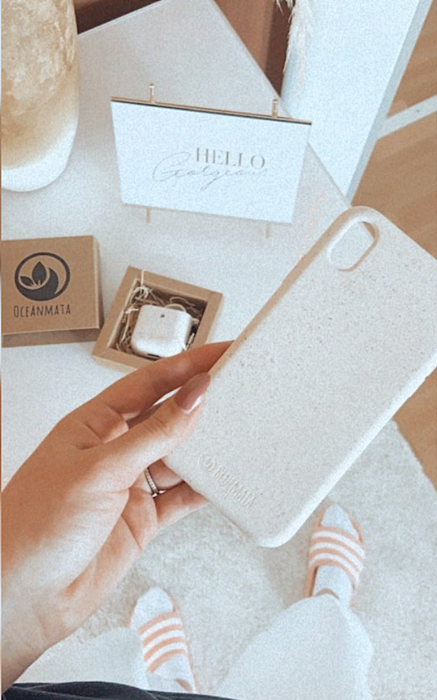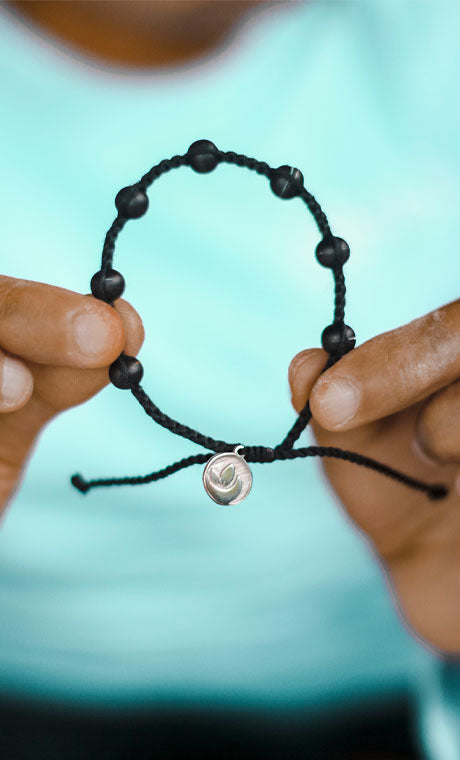Smartphones cost a lot of money and are a huge burden on the environment. That's why it's so important to protect your new smartphone as best as possible to ensure its longevity. Here, we'll present you with the best tips for protecting your smartphone's software, as well as the phone itself.
Apps, programs and tips you need for smartphone security
One of the biggest threats to many electronic devices is viruses or malware that have accidentally or unknowingly found their way onto your device. However, excessive use and neglect of your smartphone's health can also cause significant damage. Here, we'll tell you what else you can do to improve its condition!
Protection against viruses and malware
Unfortunately, it can happen quickly: you simply click the wrong link, download the wrong file, or open a suspicious email, and suddenly your smartphone starts malfunctioning, deleting data, or unfortunately, completely crashes. Fortunately, there are a few things you can do to prevent a virus or malware from appearing on your smartphone, and we've put together a short guide for you.

The first tip is incredibly simple, yet is neglected by many. As soon as we get a new laptop or computer, installing an antivirus program is one of the first steps. But have you ever paid attention to this with your cell phone? You wouldn't even be alone! According to a survey, only around 43% of those surveyed have set up appropriate security measures on their smartphone. So install an antivirus app that detects viruses and malicious software and alerts you to them. There are numerous suitable apps, especially for Android users, such as Avira , Kaspersky or Bitdefender . Unfortunately, there are currently no antivirus apps for iOS. You can find out more about this topic and how you can still increase the security of your iPhone here .
In general, you should of course be cautious online and never click on links from unknown senders via WhatsApp, SMS, or email, avoid uncertified websites, and only download files from trusted sources to your phone.
Download apps only from the Play Store or App Store
When it comes to antivirus apps, you should definitely make sure you only download them from the Google Play Store . In general, you should always ensure that any apps you download to your smartphone come from a trustworthy source. You can generally assume this is the case with the respective app stores . However, you should also make sure that the apps have been downloaded by many other users and have largely received positive reviews. Also, pay attention to the permissions the respective apps request and be skeptical. If, for example, an alarm clock app wants to access your gallery and contacts, you should be suspicious.
Regular updates
To protect your phone from these viruses or other potential security vulnerabilities, you should always install available updates for iOS or Android immediately. Your apps should also be updated regularly for the same reason. You can do this either manually or allow automatic updates via the App Store.
Turn off your smartphone every now and then
To protect your device and battery life, you should turn off your smartphone regularly. This reduces the constant strain on the battery and deletes unnecessary temporary files. This also has a positive side effect on your productivity and can sometimes be quite pleasant when your electronic devices are turned off for several hours. Turning your phone off at night also ensures better sleep and a more sustainable life. However, if you rely on an alarm clock, activating airplane mode can at least be a relief during this time.
By the way: For most devices, you can check the battery life since the last shutdown via the settings, and trust us—the number will shock you! We recommend turning off the device at least once a week.
Do not charge overnight
Another factor that's harmful to your smartphone and the environment is charging it all night. We all know the problem – we often use our smartphones every minute or are on the go all day, and it's annoying to leave them plugged in for a while. So we plug our phone in to charge it just before bed and wake up with a full battery. However, this can cause your battery to lose power more quickly, as it's constantly recharging overnight. It's better to at least turn off your smartphone while charging it overnight.
Safe handling of your own data
Almost our entire lives take place on our smartphones, and that includes sensitive data and images that we don't necessarily want to share with the world. Fortunately, there are a few tips and apps that can help you increase the security of your personal data.
Passwords increase security
A simple first step is to protect your data, files, and access with passwords . However, you should never store these on your smartphone, and of course, use clever and unique passwords that aren't easy for strangers to guess.
Install firewall
However, there are numerous programs and apps that you can use to further secure your data. This includes, for example, installing a firewall . This monitors the network activity of the applications on your smartphone and can block any potential unauthorized connections if necessary. The firewall can also protect your smartphone from spy apps that can read contact details, passwords, and other information from your phone and pass them on to third parties. Unfortunately, firewalls are currently mostly only available for Android smartphones.
Be careful with public Wi-Fi networks
In general, you should always be very cautious when connecting to public Wi-Fi networks. Never use your online banking in such situations, as your phone is particularly vulnerable to cybercriminals who can spy on your data flow . You should also avoid data connections that aren't certified with an HTTPS certificate on public Wi-Fi.

Theft protection
Even though your phone is optimally protected against virtual attacks, there's still a risk of it being stolen or lost. However, with these tips, at least your data is protected , and in the best case scenario, you can even find your smartphone again:
- Tip 1: The easiest way to protect your phone from unwanted access and increase the security of your data is to set up a screen lock , e.g. with a PIN or face recognition.
- Tip 2: You can activate a PIN for your SIM card to protect it from unauthorized access. If your phone is stolen, you should also have your SIM card blocked directly by your provider to avoid incurring high phone charges.
- Tip 3: Perhaps the most frustrating thing about a phone theft or if your smartphone is lost is all the memories, pictures, and contacts that go with it. Therefore, it's a good idea to link your photos and videos to cloud services like Google Drive or One Drive and set up regular automatic backups. If you want to be on the safe side, you can also transfer your files to your laptop or an external hard drive. Even if your smartphone simply breaks, you can restore many things using your Google Account .
- Tip 4: Newer smartphones also offer the option to encrypt the internal memory and SD card. This prevents your data from being read in the event of theft.
- Tip 5: Many smartphones allow you to check your location, remotely lock your phone, and delete data. It's best to check your phone for these features right away so you can use them in an emergency. Unfortunately, iOS is somewhat better equipped in this regard, and this is only the case with a few Android versions.
- Tip 6: However, the features mentioned above are only available if the stolen phone is connected to the internet and location services are enabled. However, you can circumvent this with anti-theft software or an antivirus program and activate these features remotely or via SMS command.
External protection: How to make your phone completely safe!
Protecting your smartphone naturally also includes protecting it from external influences and the hazards of everyday life . There are plenty of suitable options for this, and the selection is vast!
How to protect the case
No matter how carefully you handle your phone, sometimes it still happens and it drops or gets scratched in your pocket. Simple cell phone cases can help protect your phone's casing. What's more, they're available in a variety of shapes and materials, giving your smartphone a truly personal touch. To protect not only your phone but also our environment, there are now sustainable alternatives made from biodegradable materials.
Of course, we can recommend our Oceanmata phone cases , which are available in nine different colors and designs for iPhone and Android smartphones . If you want to take things a step further, you can further secure your smartphone with a phone case with a lanyard or a holder on the back, such as a PopSocket or our Phone Strap , to prevent accidental drops.

How to protect your display
The most vulnerable part of a smartphone, however, is the display, which is particularly susceptible to scratches and scrapes and rarely, if ever, forgiving of drops. Therefore, we recommend protecting your display from these everyday hazards with a screen protector or glass protector right from the start.
We look forward to your tips!
We hope you can put some of these tips into practice and thus keep your device as long as possible. Electronic waste and the highly critical extraction of raw materials for new devices pose major threats to our environment and the people who are exposed to it.
Of course, we're very curious to hear what other tips you have for keeping your phone secure! Feel free to share them with us in the comments!













